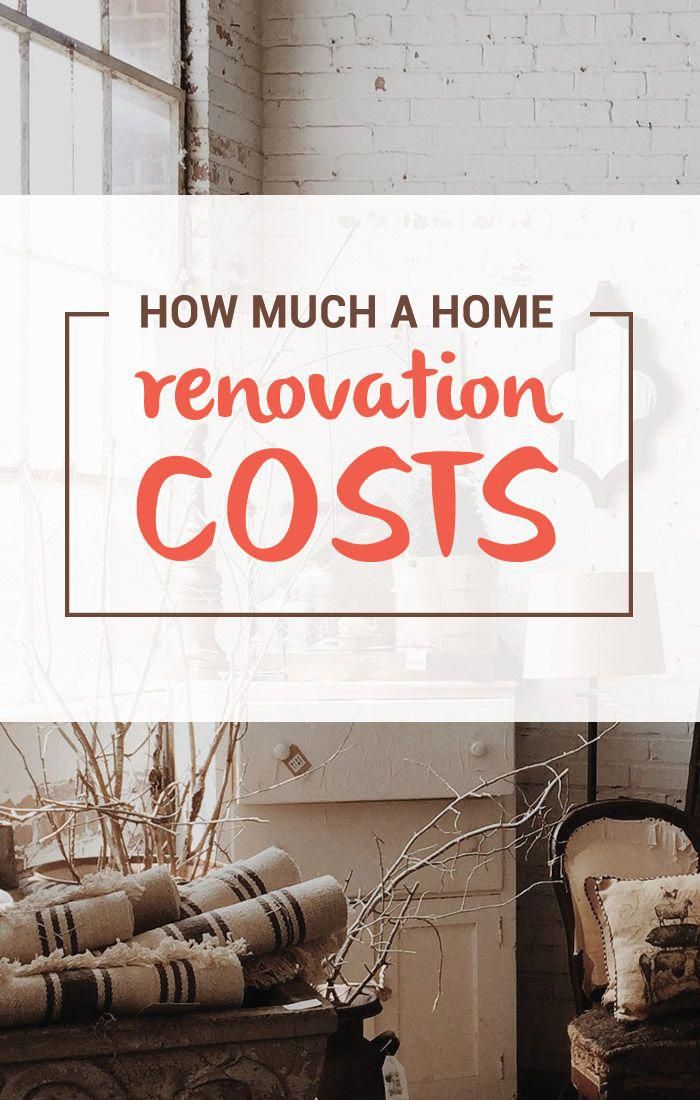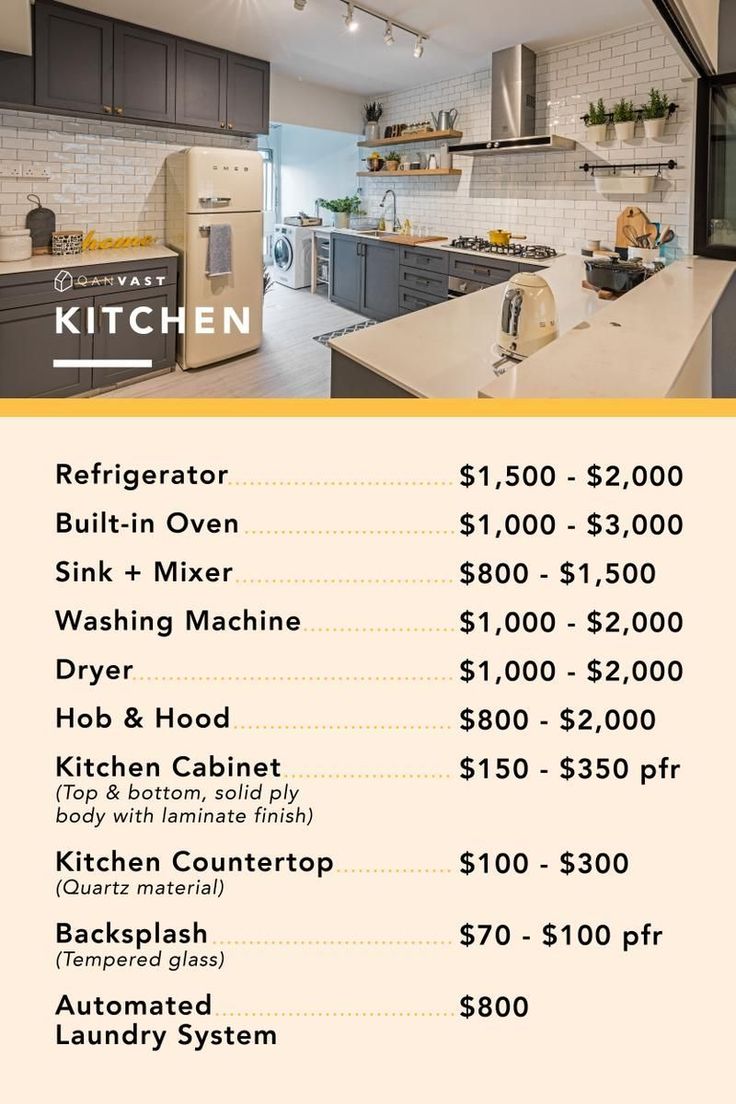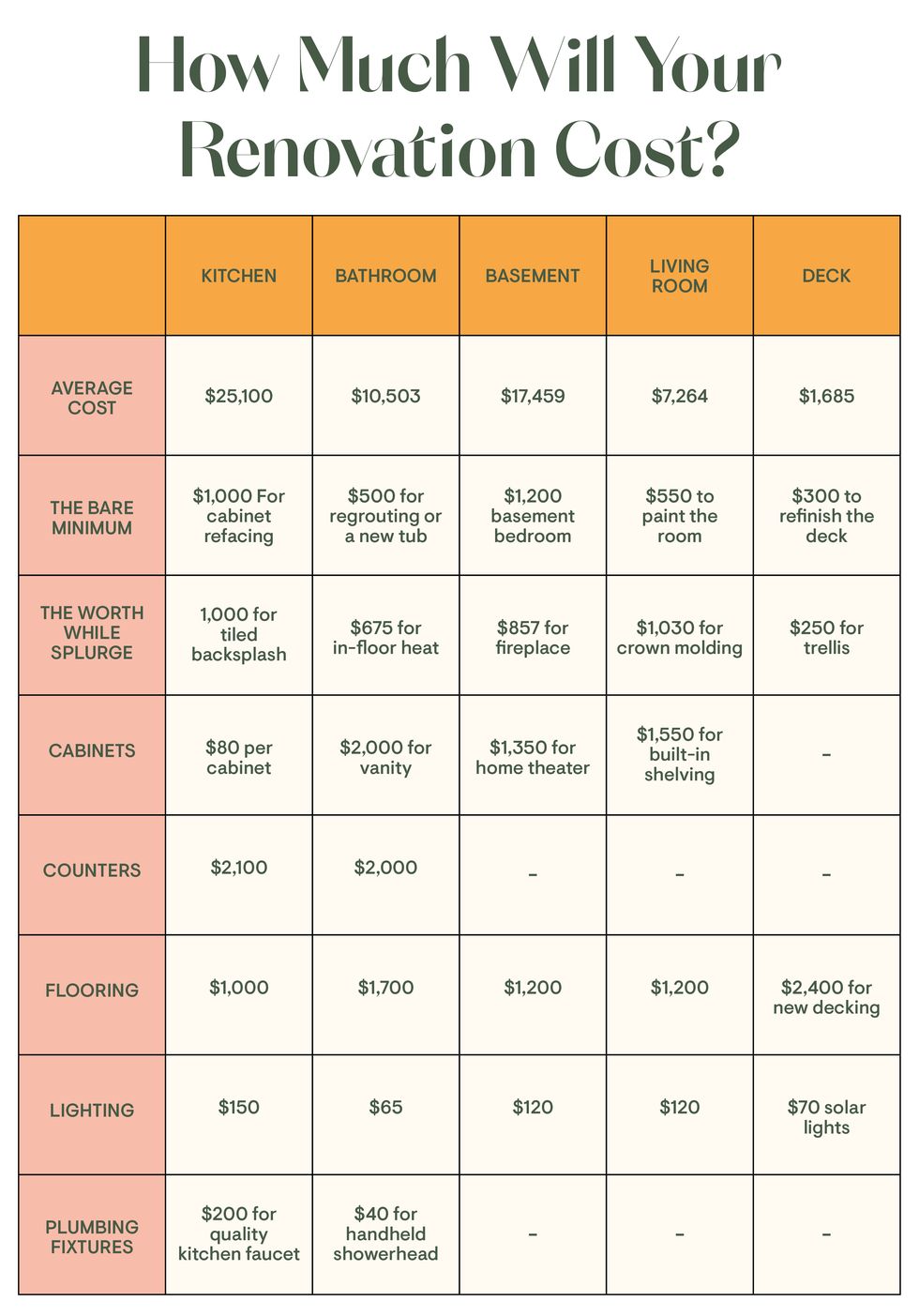As you plan your renovations, keep in mind that the remodeling price tag for no single room, except the kitchen, should exceed about 10% of the house's current value. Kitchen renovations are more costly and, in some cases, can exceed 15% of the home's value.
Is $100 000 enough to renovate a house?
Gut Renovation
Depending on the square footage, the average cost to gut and remodel a house can be $100,000 – $200,000. Gutrenovation cost per square foot ranges between $60 and $150 and includes new plumbing, appliances, structural improvements, a new roof and an HVAC (heating, venting, air conditioning system).
What is the rule of thumb for remodeling costs?
As a general rule of thumb, allocating around 10-15% of your total home value towards your renovation budget is a good idea.
What is the most expensive part of renovation?
- Building an Addition.
- Renovating or Repairing a Home.
- Remodeling or Renovating One or More Rooms.
- Installing Solar Panels.
- Remodeling a Kitchen.
- Remodeling a Bathroom.
- Installing or Replacing an Asphalt Shingle Roof.
- Building or Replacing a Deck or Non-Masonry Porch.
Is a full house renovation worth it?
In what order should you renovate a house?
- Planning and Design.
- Demolition.
- Rebuilding/Framing.
- Mechanicals/Plumbing/HVAC/Electrical.
- Walls.
- Flooring.
- Cabinets.
- Appliances.





I’ve been heavily working in “consolidation mode”, to sell smaller properties and focus on bigger, and just closed another sale last week.
— Tory Sheffer (@ToryJSheffer) July 31, 2023
Purchased November 2021: $975k
Renovations: $150k
Sold July 2023: $1.6m
Here’s the full story with details and net returns to LPs:
Debt:… pic.twitter.com/aei2TAWujU
How much should you spend on a remodel?
Full home renovation: $100—$400+ per square feet (psf) Budget kitchen remodel: Starting at $24,500 (based on a 200-sq-ft kitchen) Mid-grade kitchen remodel: Starting at $37,500.
Frequently Asked Questions
What is the most expensive part of a remodel?
While cabinets are the clear winner, some elements are next in line, too. Other expensive aspects of a kitchen remodel include appliances like the refrigerator, microwave, oven, and dishwasher that cost $7000 – $12,000 on average. Next are kitchen countertops for $6000 (including installation).
How do I know how much to spend on a remodel?
- Kitchen: 10% to 15% of house's value.
- $750,000 house: $75,000 to $112,500.
- Powder Room/Bathroom: 5% of house's value.
- Finished Attic or Basement: 10% to 15% of house's value.
- Other Rooms: 1% to 3% of house's value.
What is the 30 rule of renovation?
Home renovation is a huge undertaking, and almost invariably takes more time and costs more money than homeowners expect. Rasekh says it's a good idea to set 20 to 30 percent of the total cost of your project aside for the unexpected — that's up to 30 percent on top of the project's original cost estimate.